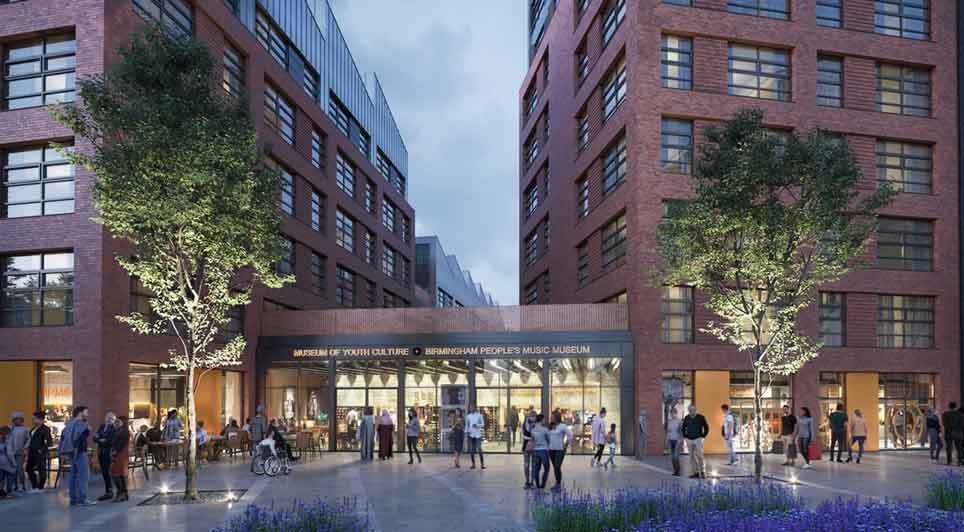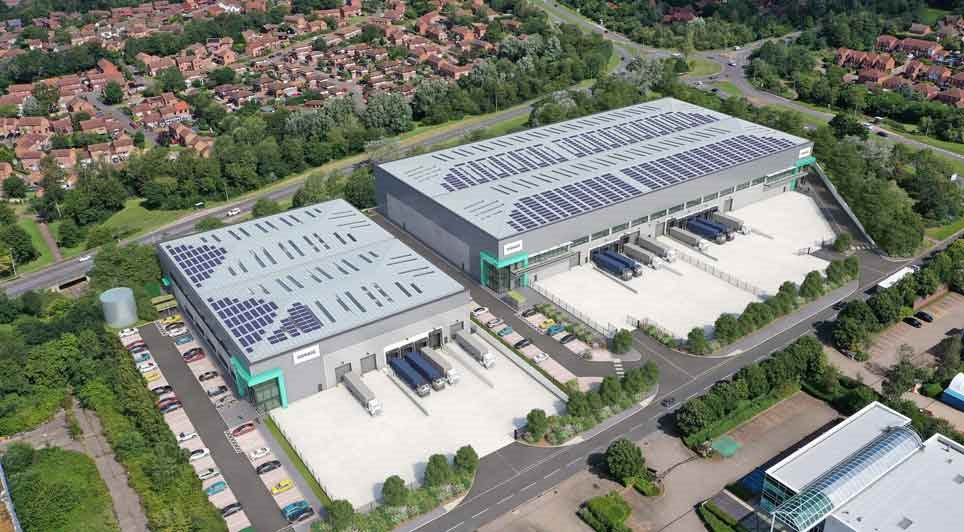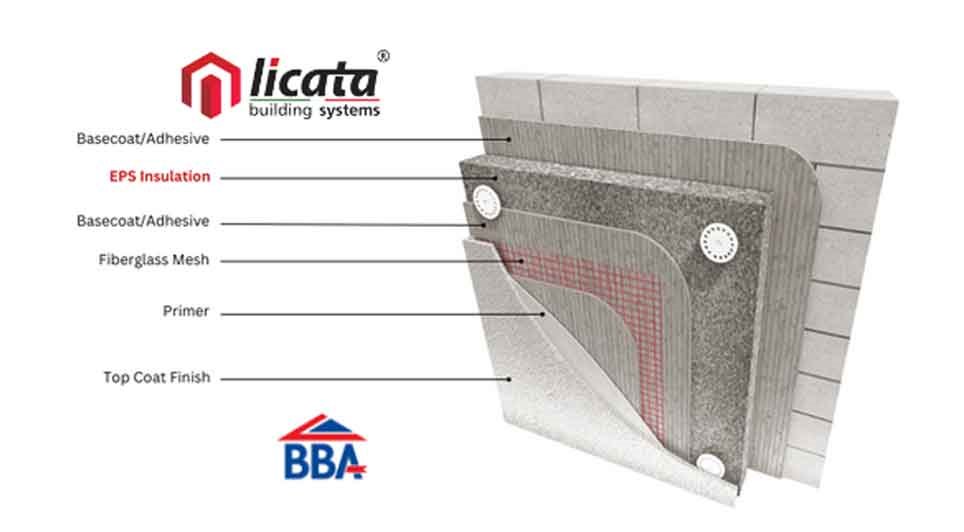Construction News
31/01/2008
Turning Up The Heat On Heat
Energy Minister Malcolm Wicks today launched a call for evidence on the best ways to decarbonise the way we heat our homes and businesses. The call forms part of the plans to reduce the UK's CO2 emissions and to contribute to the target of obtaining 20% of all EU energy from renewables by 2020.
The call seeks advice on: existing technologies for producing heat in a lower carbon way - such as combined heat and power, renewable heat, heat from waste, and district heat - could be developed further.
Whether we need new incentives to stimulate the development of renewable heat, and what form they might take.
How surplus heat might be captured and what role there is for low-carbon electricity and which options could provide the most cost-effective solutions.
Mr Wicks said: "Heating our homes and businesses accounts for nearly half of the UK's energy demand and for almost half of our carbon dioxide emissions. We're already developing ambitious strategies for renewable electricity and biofuels in road transport but we need to seriously look into cost-effective sources of renewable heat. Keeping warm at the same time as tackling global warming is a big challenge.
"We are looking for technical contributions and firm evidence of what the Government needs to do to develop renewable heat such as biomass, heat pumps and biogas. Also advice on what role low-carbon electricity should play in heating and how surplus heat can be captured, transported and re-used to heat local buildings rather than going to waste.
"The responses to this call will put us in a strong position to develop policy to take to consultation this summer and set out firm plans to reach the UK's share of the EU 2020 target."
The results of analysis of the heat market undertaken by the Office of Climate Change are set out in the document and are the starting point for ideas on how the UK needs to change to reach its target.
Households use heat for space heating (70%), heating water (27%) and cooking (3%). The majority (81%) of household heat is met using gas, the rest are met from electricity (8%), heating oil (8%) and solid fuels such as wood and coal (2%).
Heat for the commercial and public sectors is mainly used in buildings for space heating (71%), water heating (13%) and cooking (15%).
The domestic and industrial sectors generate roughly the same level of CO2 emissions from heat, even though domestic heat demand accounts for a larger proportion of final energy use. The reason for this is that industry uses a higher proportion of more carbon-intensive fuels or electricity to achieve the high temperatures needed.
The call for evidence will be followed by a formal consultation in the summer.
(GK/JM)
The call seeks advice on: existing technologies for producing heat in a lower carbon way - such as combined heat and power, renewable heat, heat from waste, and district heat - could be developed further.
Whether we need new incentives to stimulate the development of renewable heat, and what form they might take.
How surplus heat might be captured and what role there is for low-carbon electricity and which options could provide the most cost-effective solutions.
Mr Wicks said: "Heating our homes and businesses accounts for nearly half of the UK's energy demand and for almost half of our carbon dioxide emissions. We're already developing ambitious strategies for renewable electricity and biofuels in road transport but we need to seriously look into cost-effective sources of renewable heat. Keeping warm at the same time as tackling global warming is a big challenge.
"We are looking for technical contributions and firm evidence of what the Government needs to do to develop renewable heat such as biomass, heat pumps and biogas. Also advice on what role low-carbon electricity should play in heating and how surplus heat can be captured, transported and re-used to heat local buildings rather than going to waste.
"The responses to this call will put us in a strong position to develop policy to take to consultation this summer and set out firm plans to reach the UK's share of the EU 2020 target."
The results of analysis of the heat market undertaken by the Office of Climate Change are set out in the document and are the starting point for ideas on how the UK needs to change to reach its target.
Households use heat for space heating (70%), heating water (27%) and cooking (3%). The majority (81%) of household heat is met using gas, the rest are met from electricity (8%), heating oil (8%) and solid fuels such as wood and coal (2%).
Heat for the commercial and public sectors is mainly used in buildings for space heating (71%), water heating (13%) and cooking (15%).
The domestic and industrial sectors generate roughly the same level of CO2 emissions from heat, even though domestic heat demand accounts for a larger proportion of final energy use. The reason for this is that industry uses a higher proportion of more carbon-intensive fuels or electricity to achieve the high temperatures needed.
The call for evidence will be followed by a formal consultation in the summer.
(GK/JM)

29/01/2025
Caddick Construction has been awarded a £43 million contract to deliver the first phase of Cole Waterhouse's flagship regeneration scheme in Digbeth, Birmingham.
The project, known as Upper Trinity Street, marks a significant step in the area’s transformation.
Spanning 182,986 square feet, the re

29/01/2025
McLaren Construction has been appointed by O&H Properties to deliver the first phase of a £60 million Foster & Partners-designed development at the corner of New Bond Street and Grafton Street in London’s West End.
The seven-storey, 5,400 square metre prime retail and office scheme will feature ret

29/01/2025
GMI Construction Group has been awarded a contract to develop three high-specification warehouse units totalling over 175,000 square feet at Precedent Drive, Milton Keynes.
The £20 million project, commissioned by DV5 Last Mile Developments (UK) Ltd, a joint venture between Coltham and Delancey Re

29/01/2025
Plans for 106 sustainable new homes in Southville, a neighbourhood in South Bristol, have been approved as the city seeks to increase housing delivery to address growing demand.
Top 10 award-winning housebuilder The Hill Group will create a £60 million development on Raleigh Road, on land that was

29/01/2025
Bouygues UK has reached a major milestone in the fourth phase of the Hallsville Quarter regeneration project in Canning Town, London.
The project, part of the £3.7 billion Canning Town and Custom House Regeneration Programme, recently held a topping out ceremony, marking the completion of the 11-s

29/01/2025
Willmott Dixon Interiors is carrying out a significant upgrade to the roof of the National Maritime Museum in Greenwich, one of London's most iconic cultural landmarks.
As part of the £12 million project, the company is installing over 23,000 square feet of sun-protected glazing above the museum’s

29/01/2025
Equans has been appointed by Babergh and Mid Suffolk District Councils to carry out crucial decarbonisation work across the councils' housing stock, using funding secured through the Social Housing Decarbonisation Fund (SHDF).
The councils used the South East Consortium's Zero Carbon Framework to s

29/01/2025
In the world of construction, the quest for energy efficiency and sustainability is ever-evolving. Among the array of solutions available, EPS (Expanded Polystyrene) insulation stands out as a versatile and effective option for enhancing the thermal performance of buildings, particularly when used f

29/01/2025
BCP Council has completed significant coastal protection works at Hamworthy Park, ensuring its resilience against erosion for the next 20 years.
A 200-metre stretch of sea wall along the eastern promenade has been reinforced using low-carbon concrete, while new steps have been constructed to improv

29/01/2025
Geo-environmental consultancy and remediation contractor, The LK Group, has strengthened its team with a trio of recruits.
The multidisciplinary company's latest raft of hires comprises a new director, associate director and remediation manager.
The geo-environmental specialist, headquartered i
 UK
UK Ireland
Ireland Scotland
Scotland London
London











